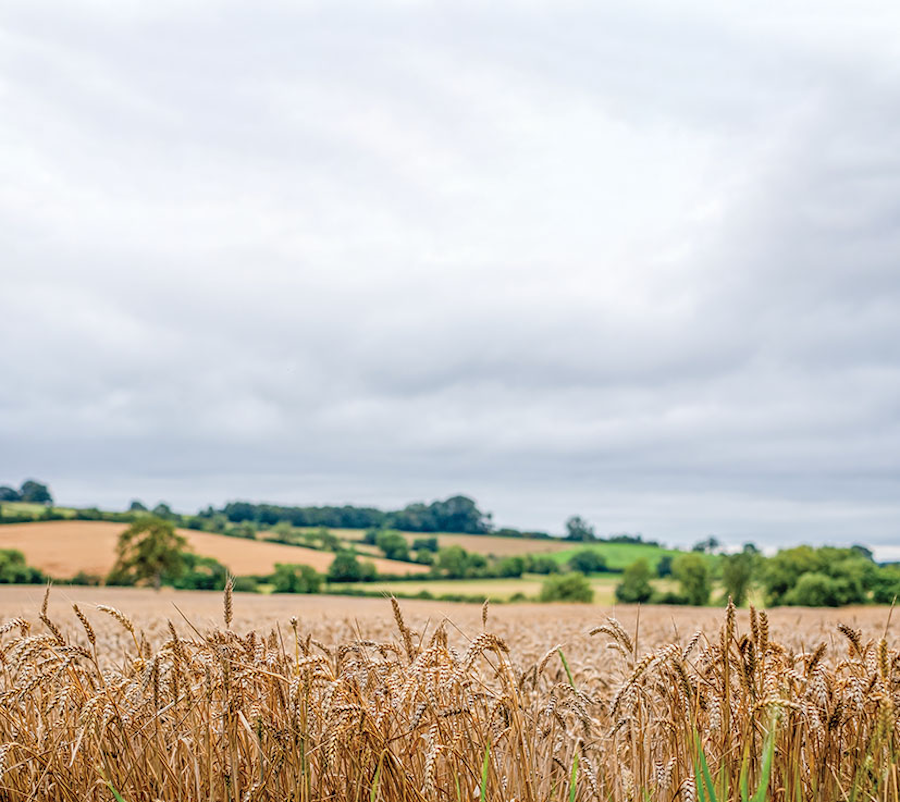Farmers share concerns about loss of food-producing land
26th December 2023
Suffolk farmers were invited to a roundtable event by the Rural Payments Agency (RPA), where they heard the latest on available schemes and grants – and shared concerns about the level of financial support for food production versus environmental management. Sarah Kidby attended.

As the UK continues its transition away from direct payments, there have been ongoing concerns that a lack of support for producing food could see farmland being increasingly lost to environmental schemes.
RPA and Defra representatives were keen to stress that maintaining food production remains the priority, alongside enhancing the environment – and outlined plans to improve the way they work with farmers and make schemes more flexible. But while the aim is to use less productive land for environmental projects, farmers at the event pointed out that for many enterprises, it could prove significantly more profitable to plant trees or wild bird seed than to grow food.
Sudbury tenant farmer Cameron Mckenna, who is also a chartered surveyor at Salter & Mckenna, commented that there is anxiety in the wider industry about an exodus from wheat production – given the high margins available for planting wild bird seed.
Sandy Kapila, RPA’s head of external affairs, acknowledged that a balance must be struck but shared that he’s spoken to some farmers who feel the environmental schemes are not financially worthwhile for them, as wheat production is still more profitable. The challenge is to create a scheme that’s broad enough for all farmers, he added.

Jeremy Squirrell, who farms at Wattisham, said he will need to take a fair bit of land out of food production, or change farming practices which will reduce production, in order to meet net zero obligations by 2040. However, it’s becoming increasingly difficult to successfully grow break crops, he said, so there could be a reduction in those such as OSR, beans and linseed.
James Batchelor-Wylam, NFU group secretary for Stowmarket and Sudbury, questioned whether tree planting targets will vary by county – as Suffolk, for example, is considered a productive arable area. Colin Horlock, of the Forestry Commission, said tree planting targets are England-wide, adding: “We don’t want to plant trees on good quality land; we’re aware that food security is vital. However, we can’t stop people who do want to plant on those fields.”
Meanwhile, a recent national tenant farmers meeting highlighted some “alarming figures” from large landowners, warned NFU Suffolk county advisor Ella Thackray. The National Trust has announced that it wants to put 50% of its land – some 620,000 acres – into environmental schemes, which is seeing many farm business tenancies not being renewed.
Sandy had heard similar feedback at other roundtable events and this has been fed back to ministers. This appears to be an “unintended consequence” of the schemes as they were designed with tenants in mind, he said. The Land Use Framework is also in development, which will underline what can and cannot be done with land.
What grants are available?
SFI and CS offers for 2023: The SFI 2023 offer was published at the end of June and the scheme is less prescriptive, Sandy explained. It’s possible to join more than one scheme as long as there’s no double funding. This year, you can choose from 23 actions, adding new actions to the agreement each year. If actions are completed, quarterly payments are available, with the first made within four months of the start of the agreement. There is also a £20/ha additional payment for up to the first 50ha (a maximum of £1,000 per farm).
Buffer strips have also been increased from 4–6m in the existing CS, to 4–12m to give greater flexibility.
Other grants you can apply for now include:
- CS Capital: which can be applied for separately (you don’t need to be in CS) and has been extended to three years
- Farming and Protected Landscapes: Focused on Areas of Outstanding Natural Beauty (now known as National Landscapes)
- Tree Health Pilot: To help manage disease issues
- Farming Innovation Programme: For big R&D projects
- Animal Health and Welfare Pathway: Funding is available for a free annual vet review
- A new round of the CSS Facilitation Fund.
- The Calf Housing grant and Automation and Robotics grants open for applications in late 2023. It’s likely there will also be an offer in 2024 with options for drainage, and other areas being looked at include new entrants, grassland, precision farming and diversification.
- Tree planting grants: The UK currently imports 80% of its timber and as direct payments are phased out, woodland could offer additional revenue streams. Colin Horlock, of the Forestry Commission, outlined three grants to help landowners establish new woodlands:

- England Woodland Creation Offer: This finances the capital costs of tree planting, up to a maximum of £10,200/ha, plus £350/ha annually for 15 years for maintenance. Applications, which are open all year, can be made from as little as 1ha of land. Up to £8,000/ha is available in six additional contributions
- Woodland Creation Planning Grant: This tends to be for more complex projects over 5ha where additional surveys are required. Up to £30,000 per site is available
- Forestry England Woodland Partnership: Forestry England leases the land from the landowner, plants the woodland, manages it and registers the land with the World Carbon Code. This is for larger projects over 20ha.
The Forestry Commission can calculate the carbon sequestration over a 50-year period, and this is tradeable – currently selling in the Woodland Carbon Code at around £25–30/t, Colin noted.
